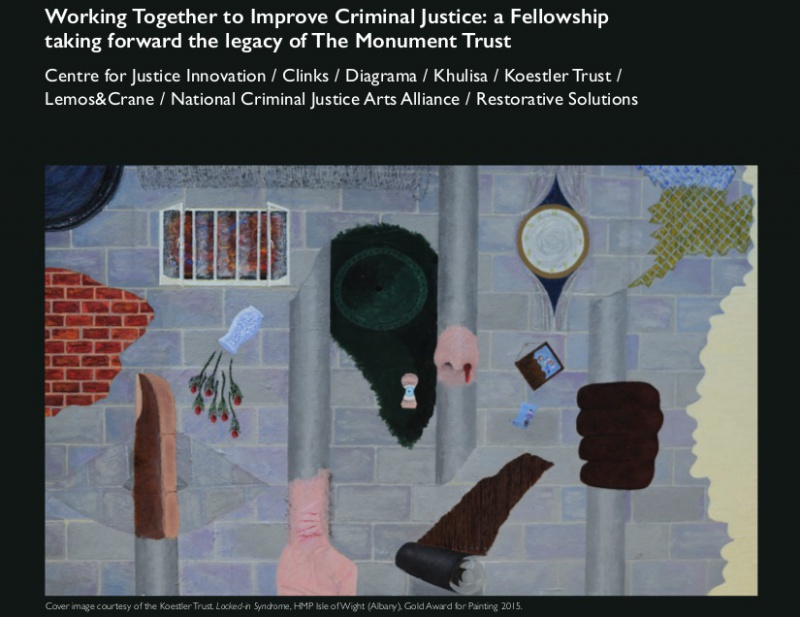Diagrama Foundation is working with a group of influential organisations across the UK in a bid to keep young people out of prison and to ensure those who do offend and are sent to prison, never go back.
The Monument Fellowship, formed as a legacy to the Monument Trust, has brought together the organisations to collaborate for several years on each stage of the journey that an offender experiences in the criminal justice system - from arrest, through prosecution and sentencing in court, in prisons and YOIs and on release.
The organisations which join Diagrama Foundation in the fellowship are: Centre for Justice Innovation; Clinks; Khulisa; Koestler Trust; Lemos&Crane; National Criminal Justice Arts Alliance and Restorative Solutions.
The fellowship launched its first publication Working Together to Improve Criminal Justice(link to pdf) last year.
Each year the fellowship also plans to publicise an important question for criminal justice, seeking contributions and responses and producing a publication of the best responses.
The first annual question on criminal justice is:
'What do offenders, prisoners and ex-offenders need to learn?'
Contributions are invited from anyone with experience and interest in improving criminal justice, as well as from academics, researchers, policy experts and practitioners.
They should ideally be between 800-2000 words, supplied as Word document. We welcome ideas at any time. We would ideally like copy by the end of May 2017 for editing and production.
All contributions will be published online and a selection will be brought together into a publication. The audience will primarily be those employed and volunteering in the criminal justice system; it is not intended to be a campaigning or lobbying document.
The publication is intended to be launched to coincide with the Koestler Trust annual exhibition in autumn 2017.
We would particularly like to hear from people with practical and personal experience. We would like to hear about individual case studies, projects and initiatives, however unusual - the more special the experiences, the more interesting they will be for others to read about.
In particular we would like to hear the voices of people who have first hand experience as prisoners and ex-offenders.
Contributors are welcome to weave in statistics and evaluation findings, where relevant and appropriate, but we are hoping that the overall tone will be one of authenticity concerning action on the ground. The aim is to inspire others to follow your example, so that is an aim to have in mind.
The final tip would be to make clear what programmes actually did, as well as why and what they achieved. Readers will also value any practical tips about securing lottery funding, getting permission from NOMS and so on.
Contact us if you would like to contribute or find out more: diagrama@diagramafoundation.org.uk
Among others, contributions have already been received on:
- Diversion from custodial sentences
- Alternatives to custody for offenders
- Problem-solving courts
- Lessons from the USA
- Transition to adulthood for young offenders
- Building conscience and empathy in offenders and prisoners
- Supporting family life for prisoners and ex-offenders
- Spirituality in the lives of prisoners
- Young disabled musicians working with prisoners
- Learning together: prisoners and university students studying together
- User experiences of education in prison and rehabilitation
- Women offenders: lessons learnt
- Charities and voluntary organisations contributing to supporting prisoners and ex-offenders
- Restorative justice in prison and the community
- Prisoners and ex-offenders making art.
The Monument Trust was established by the late Simon Sainsbury in 1965. Since then trustees have approved more than £400 million in grants, predominantly in the United Kingdom. Along with the needs of people at risk through homelessness, criminal justice has been an abiding concern for the trust, from problem-solving in local communities, to keeping young people on a path away from offending, and motivating those in prison to achieve a better personal way of life, positive human relationships and the chance of a real livelihood after release towards lasting resettlement.
Attached Files:
| Attachment | Size |
|---|---|
| 1.05 MB |






